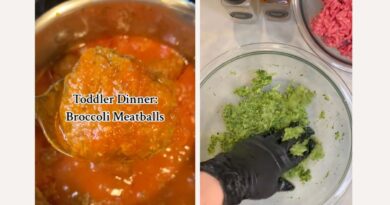The Best High Protein Foods for Picky Eaters to Enjoy
As a parent of a picky eater, protein is one of those nutrients that you might worry that your child isn’t getting enough of. In this blog I’ll go through the best high protein foods for picky eaters including proteins for children who don’t eat meat.

Why Protein is Important
Protein is one of the core nutrients that we all need daily and it plays a significant role in our body’s growth, repair, and overall health.
Every cell, from our skin and hair to our muscles and organs, relies on protein for proper functioning.
And this is especially for children because they are growing.

Role in Growth, Repair, and Health
From the moment a child is born, you’ll know that they rapidly grow and develop. Protein acts a bit like the building blocks during this phase, helping to form new cells and tissues.
But it’s not just about physical growth; protein helps in repairing any damaged cells, so that the body recovers and heals efficiently.
Proteins are also crucial for lots of processes in our bodies that maintain our overall health, from enzyme reactions to hormone production.

How the Body Uses Protein
Protein is continuously recycled in the body. First we consume protein-rich foods, then our digestive system breaks them down into individual amino acids.
These amino acids are then used to build and repair tissues, make enzymes and hormones, and support growth and maintenance.
Any excess is excreted from the body in our pee and poo.
For children, this cyclical process is even more significant as they have higher protein turnover rates due to their rapid growth.
For parents, especially those with picky eaters, the challenge lies in making sure that their child eats enough high quality protein to meet the nutritional demand.

Not all high protein foods for picky eaters is created equal
When it comes to protein, it’s essential to understand that not all sources are created equal.
The quality of protein is determined by its amino acid profile. Nine of these are considered “essential amino acids,” meaning our bodies can’t produce them, so we must get them from our diet.
A “complete protein” is a protein source that contains all nine essential amino acids in sufficient quantities. Animal-based proteins like meat, fish, eggs, and dairy are generally complete proteins.
Some plant-based proteins are also complete, such as quinoa and soy but most are called incomplete proteins and don’t contain all of the essential amino acids.
While it’s crucial to get all the essential amino acids, the amounts you get can differ between protein sources. Including a variety of high protein foods for picky eaters is the best way to make sure that your little one gets the full range of amino acids in their diet.

Protein Requirements for children
With that said, the number of grams of protein children need per day is not as high as people think. You might be surprised at the numbers:
- 1-3 years: 14.5 grams/day
- 4-6 years: 19.7 grams/day
- 7-10 years: 28.3 grams/day

Amounts of Protein in Common Foods
To help you gauge the protein intake of your children, here’s a table showing the protein content of various common high protein foods for picky eaters:
| Food Item | Protein Content |
| Chicken breast (100g) | 31g |
| Beef steak (100g) | 26g |
| Salmon (85g) | 22g |
| Chickpeas (100g) | 19g |
| Quinoa (100g) | 16.5g |
| Chickpea pasta | 14g |
| Cottage cheese (100g) | 11g |
| Edamame (100g) | 11g |
| Greek yogurt (100g) | 10g |
| Cheddar cheese (40g) | 10g |
| Lentils (100g) | 9g |
| Black beans (100g, cooked) | 8.9g |
| Tofu (100g) | 8g |
| Peanut butter (2 tbsp) | 8g |
| Peanuts (30g) | 7g |
| Cow’s milk (200ml) | 6.8g |
| Sunflower seeds (30g) | 6.3g |
| Almonds (28g or 23 nuts) | 6g |
| Eggs (1 large) | 6g |
| Pumpkin seeds (30g) | 5g |
| Peas, green (100g) | 5g |
| Corn (100g) | 3.3g |
| Soymilk (100g) | 3.3g |
| Potato (150g) | 3g |
| Broccoli (100g) | 2.8g |

Is Protein Powder Safe for Children?
The market is flooded with protein supplements, and as parents become more health-conscious, it’s natural to wonder if these supplements are suitable for children.
Protein powders can offer a convenient boost, especially for active adults, they’re not necessary or advisable for children.
Here’s why:
1. Whole Foods are Best:
Whole foods provide more nutrition – not just protein. They come with other vitamins, minerals, and beneficial compounds that children need. Protein powders, on the other hand, are ultra processed and do not not offer the same breadth of nutrients.
2. Risk of Contaminants:
Some protein powders, especially those not stringently tested, can contain harmful substances. A study found that some protein powders had heavy metals like lead, arsenic, and cadmium. These are not substances you’d want your child to consume.
3. Digestive Issues:
Protein powders can sometimes lead to digestive problems. Children might experience bloating, gas, or even diarrhoea. Their digestive systems are still developing, and a sudden influx of concentrated protein can be hard for them to process.
4. Excessive Protein Intake:
While protein is essential, more isn’t always better. Excessive protein can strain the kidneys and can lead to long-term health issues. Children need a balanced diet. Overemphasis on one nutrient can lead to imbalances and deficiencies in others.
5. Unknown Additives:
Many protein powders come with a mix of additives, flavourings, and sweeteners. While some might be harmless, others such as caffeine can have adverse effects, especially when consumed regularly by children.
Given the potential risks of protein supplements and the benefits that whole foods offer, I strongly recommend meeting your child’s protein needs through natural high protein foods for picky eaters. If you’re struggling to do this and need help to fix your child’s picky eating, get in touch.
If you’re considering protein supplements for any specific reason, such as a medical condition or a highly specialised diet, always consult with a dietitian. They can provide guidance tailored to your child’s unique needs and circumstances.

Protein for toddlers who won’t eat meat
Many parents get in touch to tell us that, no matter what, their child simply won’t eat meat.
Whether it’s the texture, the taste, or just a phase, what I want you to know is that meat isn’t the only source of protein and children can absolutely meet their protein needs even if they refuse meat or you choose to raise them on a vegan or vegetarian diet.
But first, let’s delve into why some children resist eating meat:

Why Some Children Won’t Eat Meat:
Texture and Chewiness: Meat can be tougher and more challenging to chew than other foods. For children who are still mastering their chewing skills or have texture sensitivities, this can be off-putting.
Likewise chewy meat for dinner is hard work. Often children do better with simpler less complex foods for their evening meal.
Developmental Phases: Young children frequently change their food preferences. One day they might love chicken, and the next, they won’t even touch it. It’s a normal part of the development of children aged 18 months to 7 years.
Negative Experiences: If your child has choked on or had a bad experience with meat, they might be hesitant to try it again.

Alternative Easy To Chew Protein Foods to Consider:
Dairy Products: Yogurt, cheese, and milk are not only rich in protein but also come with the added benefit of calcium and vitamin D. They’re also soft and easy to consume.
Eggs: Scrambled, boiled, or made into an omelette with some veggies, eggs are a versatile and protein-rich option.
Legumes: Lentils, chickpeas, and beans can be mashed or pureed to make them toddler-friendly. Think lentil soups or chickpea hummus.
Tofu: Soft in texture and neutral in taste, tofu can be incorporated into various dishes and lends itself well to the flavours of the meal. It can be scrambled, added to soups, or even blended into smoothies.
Nut Butters: Peanut or almond butter spread on toast or mixed into porridge oats can be an excellent high protein foods for picky eaters. Choose 100% nuts to ensure there are no added sugars or salt.
Quinoa: A grain that’s also a complete protein, quinoa can be cooked and mixed with veggies or even fruits for a sweet variant.
Smoothies: Blending fruits with yoghurt, milk, or even adding a spoon of nut butter can make for a protein-rich drink that’s easy to consume.
Remember, every child is unique, and their food preferences can change.
It’s essential to keep offering various protein sources so that they become familiar with them but without the expectation to have to eat them.

High protein vegetarian meals for picky eaters
If you are raising a vegetarian child, it doesn’t mean you’re compromising on protein.
In fact, there are tons of vegetarian foods that are rich in protein and can be made appealing even to the pickiest of eaters.
Here are some high-protein vegetarian meals which are enticing for children:
1. Quinoa Salad
2. Peanut Butter & Banana Sandwich
4. Lentil Soup

Will more protein help your child sleep better?
A lack of sleep is a concern for many parents, and nutrition plays a role in ensuring children sleep well.
While carbohydrates are often associated with promoting sleep due to their role in increasing the sleep-inducing amino acid tryptophan in the brain, protein also has a part to play.
Let’s explore the potential link between protein intake and sleep quality in children:
1. Tryptophan and Sleep:
Tryptophan is an essential amino acid found in many protein-rich foods. It serves as a building block to the brain chemical serotonin, which is then converted into the sleepy hormone melatonin.
Melatonin is referred to as the “sleep hormone” because of it’s role in regulating our sleep-wake cycle. Consuming foods rich in tryptophan can potentially increase melatonin production, promoting better sleep, but your child would need to eat a lot of these!

2. Satiety and Sleep:
Protein is known for its satiating properties. A meal rich in protein can make your child feel fuller for longer. This feeling of fullness can prevent nighttime hunger pangs, which can disturb your child’s sleep.
3. Blood Sugar Stability:
A balanced meal with adequate protein can help stabilise blood sugar levels. Stable blood sugar levels can prevent spikes and crashes.
4. The Balance is Key:
While protein has its benefits, it’s essential to balance it with the other macronutrients, carbohydrates and fats.
A meal too high in protein and low in carbohydrates might not provide the desired sleep benefits as carbohydrates help in the transport of tryptophan across the blood-brain barrier, making it more effective.
If you’re considering adjusting your child’s protein intake to improve sleep, it’s essential to take a measured approach:
- Ensure meals are balanced with protein, healthy fats, and starchy carbohydrates.
- Opt for natural sources of protein like lean meats, dairy, legumes, and nuts rather than supplements.
- Monitor your child’s sleep pattern and make note of any changes as a result of changing their protein intake, positive or negative.
- Always consult with a dietitian before making significant changes to your child’s diet.
While protein does play a role in sleep quality, it’s just one piece of the puzzle. Factors like sleep environment, bedtime routine, and overall health also significantly influence sleep.

How can I add protein to my child’s diet?
Ensuring your child gets enough protein is crucial for their growth and overall health.
But if you’re dealing with a picky eater or simply looking for ways to diversify their protein sources, it can be a bit challenging.
Here are some creative and practical tips to seamlessly incorporate more protein into your child’s diet:
1. Breakfast Boost:
Start the day right by adding protein to their breakfast. Mix Greek or Skyr yoghurt into their cereal, make porridge with milk instead of water, or serve whole grain toast with peanut or almond butter.
2. Sneaky Smoothies:
Children love smoothies! Blend together fruits, spinach (they won’t even taste it!), yoghurt, or milk. For an extra protein punch, add a spoonful of nut butter or chia seeds.
3. Upgrade Snacks:
Replace regular snacks with protein-rich alternatives. Think cheese sticks, hummus with veggie sticks, or roasted chickpeas. Even a simple peanut butter sandwich can be a protein-packed snack.
4. Double Up on Dairy:
Dairy is an excellent protein source. Add cheese to a ham sandwiches, serve milk along with snacks, or make a dessert with yoghurt and fruit.
5. Beans and Lentils:
These are not only protein-rich but also versatile. Add them to soups, stews, or even salads. You can also mash beans and use them as a filling for wraps or quesadillas.
6. Nut Butter Drizzle:
Drizzle almond or peanut butter over fruits like bananas or apples. It’s a tasty way to add protein and healthy fats.
7. Reinvent Favourites:
If your child loves pizza, make it with a chickpea flour base. Or if they enjoy muffins, bake them using almond flour for added protein.
8. Protein-Packed Desserts:
Make desserts like protein balls using oats, nut butter, honey, and some chocolate chips. Or try cottage cheese mixed with honey and fruit as a creamy dessert.
9. Experiment with Tofu:
Tofu is a protein powerhouse and takes on the flavour of whatever it’s cooked with. Scramble it like eggs, add it to stir-fries, or even blend it into smoothies.
10. Educate and Involve:
Sometimes, kids are more willing to try new foods if they are in a low pressure environment with no expectation to eat. Talk to them about foods and involve them in cooking as much as you can. Making a meal together can be a fun activity and a learning experience.
11. Keep It Fun:
Use cookie cutters to make fun shapes out of sandwiches or pancakes. Arrange food in a creative manner on the plate. The more visually appealing, the more likely they are to eat it.
Remember, every child is different.
What works for one might not work for another and sometimes you need an individualised approach to fussy eating.
The key is persistence, creativity, and patience.

High-Protein Snacks and Meals
Ok, here you have my top 10 high protein breakfast, lunch, dinner, dessert and snack ideas, thats 50 high protein foods for picky eaters in total! Enjoy:
High protein breakfast for picky eaters
1. Scrambled Eggs with Veggies
2. Peanut Butter Banana Pancakes
6. Whole Grain Toast with Avocado and Egg
8. Cottage Cheese and Fruit Bowl Serve with wholegrain toast
9. Peanut Butter and Jelly (jam) Protein Smoothie

Protein for kids lunches
3. Chickpea Salad great as a topper for crackers
4. Healthy Vegetable and Tofu Stir-Fry
8. Greek Yogurt Chicken Salad serve in wholemeal pitta breads
10. Tuna carbonara

What snacks are high in protein for kids?
Snacks make a fabulous addition and contribute significantly towards meeting your child’s daily protein needs.
Here is a list of protein-rich snacks that are not only nutritious but also appealing to young palates:
3. Hummus Dip with wholemeal pitta and veggies
5. French toast sticks with fruit
6. Egg Muffins
7. Peanut Butter Banana Roll-Ups
8. Roasted Chickpeas with dried fruit
9. Tofu Sticks and carrot with peanut dipping sauce
10. Mini Lentil Patties with tomatoes
Protein dinners for picky eaters
1. Chicken and Vegetable Skewers
2. Fish Cakes
8. Chicken and Cheese Quesadillas
9. Vegetable and Chickpea Stew
10. Beef and Vegetable Stir-Fry
High protein desserts for children
1. Peanut Butter Banana Ice Cream
8. Peanut Butter Jelly Protein Bars
10. Protein-Packed Cheesecake Bites

The post The Best High Protein Foods for Picky Eaters to Enjoy appeared first on The Children's Nutritionist.



